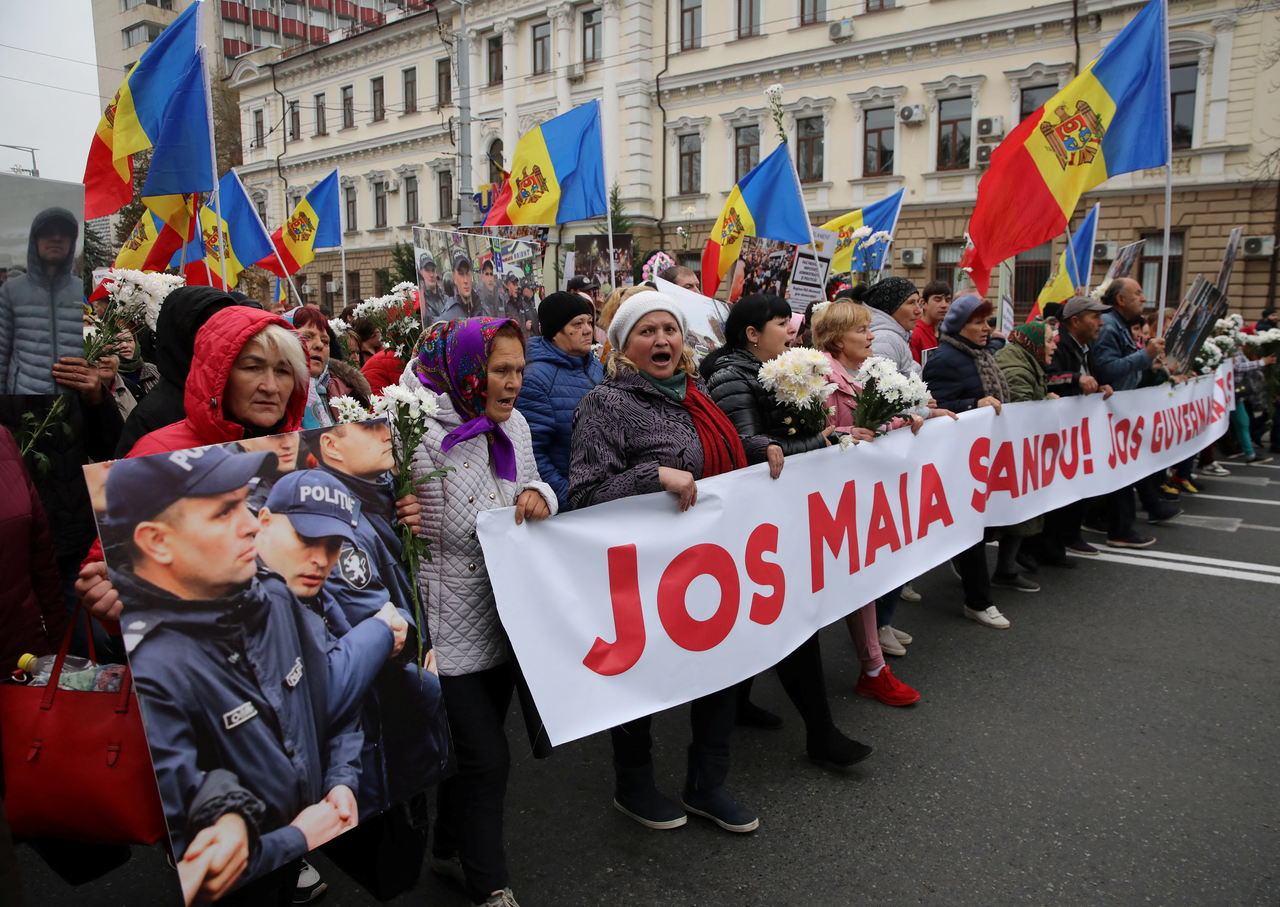Pro-European Party of Action and Solidarity Wins Local Elections in Moldova
Moldova on 5 November held local elections, the first since pro-European President Maia Sandu took power in December 2020 and her Party of Action and Solidarity (PAS) in August 2021. Although a second round will be necessary in about a third of self-governments, the results of the first round indicate PAS was the winner. Although it failed to gain power in Chişinău, it expanded its influence in local governments across the country. The Moldovan government successfully resisted Russian attempts to destabilise the state by not allowing Şansă (Chance) Party candidates to run in the elections.
 VLADISLAV CULIOMZA / Reuters / Forum
VLADISLAV CULIOMZA / Reuters / Forum
What are the results of the local elections?
Residents of Moldova elected 1,086 raion (district) and city councillors, 9,972 municipal councillors, and 898 mayors. PAS received the most votes at 33%. It won in 19 of the 32 raion and will govern alone in four of them. The pro-Russian Party of Socialists (PSRM) of former President Igor Dodon fell to second place at the local level. It won 23.5% of the total vote, won in 8 raion, and has a majority in 3 of them. PAS seems to have made a mistake in nominating an unknown candidate for mayor of Chişinău and to abandon the fight with the incumbent mayor, Ion Ceban, who won in the first round. However, PAS, like Ceban’s National Alternative Movement (MAN), won 20 councillors out of 51 in the capital. In Bălţi, the country’s second-largest city (excluding Transnistria), in the second round for mayor would run the candidate of Our Party of the regional politician Renato Usatîi and an independent candidate who is in fact representing Şansă—the latter will appeal to the court against the decision of the electoral commission, which excluded her from the second round because of fraud reported by police.
Why was Şansă excluded?
On 3 November, the government’s Commission of Emergency Situations, under the national security law, excluded Şansă candidates, totalling about 600 people, from the elections. It justified its decision on the basis of a security service report that the party had accepted some €52 million from Russia, which is seeking to destabilise Moldova, and had bribed some voters. Şansă accuses the authorities of arbitrariness, arguing that the decision was not made by an authorised court and the party had no possibility to appeal against it, and announced an attempt to annul the election in court. Şansă was formed in August 2023 to bring together before the current elections the activists and electorate (around 15%) of the Şor Party, which the Constitutional Court banned in June due to illegal funding and attempts to overturn the constitutional order. Ilan Şor, the de facto leader of both parties, was sentenced to 15 years in prison for organising the theft of one billion dollars from three banks in Moldova in 2014. He is living in exile in Israel, where he is also a citizen.
What are the foreign policy views of the mayor of Chişinău and his National Alternative Movement?
Ceban after his election as mayor of the capital in 2019 came into conflict with Dodon and sought to take control of PSRM, which had nominated him. Faced with failure in this attempt, he began to build an independent position as a left-wing pro-European politician. Therefore, although he remains in opposition to the government, he offers it cooperation on Moldova’s accession to the EU in 2030. His MAN party took part in the large pro-European demonstration in Chişinău called by the president ahead of the European Political Community summit in Bulboaca. However, Ceban’s pro-Europeanism is probably only an outward image, as according to media investigations, he and MAN are supported by advisers and funds from Russia. His aim is to win over the electorate of PAS, especially the Russian-speaking and conservative-minded voters, and enter national politics—there will be presidential elections in 2024, in which Sandu will not be eligible for re-election, and parliamentary elections in 2025.
What is the significance of the local elections for further reforms on Moldova’s path to the EU?
The results of these elections confirm the Moldovan people’s appreciation of the progress towards EU membership achieved by Sandu and PAS. The party won high levels of support despite two years of rule during an economic crisis and Russian attempts to destabilise the country, even though the diaspora that votes for it en masse did not participate in these elections. Until now, most local governments have been dominated by the corrupt former oligarchic network. In the previous elections, PSRM won the most votes with 27% and the Democratic Party of oligarch Vladmir Plahotniuc, who in fact ruled the country with the cooperation of Dodon, came second with 25%. The pro-Western ACUM bloc, co-founded by Sandu, won 22%. Broadening the base in local government gives PAS a chance to implement reforms and investments more effectively. This will be particularly needed for the long-postponed reform of the territorial division and self-government. It also is an opportunity for Poland—one of the main proponents of Moldova’s EU membership—to offer its wealth of experience in the construction and functioning of local governments.





.jpg)